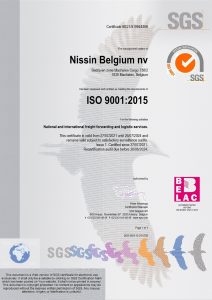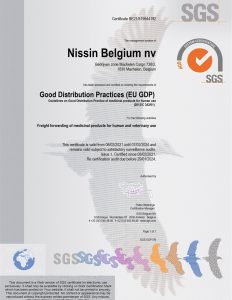The Benefits of Integrated Logistics for Seamless Operations
Efficient logistics are the backbone of any thriving business. Whether moving products across town or shipping goods around the globe, the way companies organize and manage their logistics services has a direct impact on customer satisfaction, operating costs, and growth potential.
Rather than treating each part of the supply chain separately, many businesses are implementing integrated logistics — a strategy that connects transportation, warehousing, inventory, and freight management into one streamlined system. This coordinated approach transforms logistics from a series of isolated tasks into a continuous, powerful flow that supports better decision-making and stronger results.
Let’s look into why integrated logistics is changing the way companies operate — and why it could be the advantage your business needs.
1. Building a Smarter Supply Chain Through Integration
Supply chain integration is one of the biggest advantages of an integrated logistics model. Instead of juggling suppliers, warehouses, and shipping partners independently, integration creates a connected network where everyone has access to the same real-time data.
This level of collaboration leads to faster reactions to changes in demand, fewer delays, and a more flexible supply chain that can adapt to new challenges without missing a beat.
2. Tapping into the Power of Third-Party Logistics (3PL) Services
Businesses that incorporate third-party logistics (3PL) services into their integrated strategy gain access to expert resources without heavy overhead. 3PL partners bring specialized knowledge, established carrier relationships, and flexible warehousing options — all of which help companies expand their capabilities without building everything from scratch.
Integration makes working with 3PLs seamless, allowing businesses to scale up or down quickly based on seasonal demands or market opportunities.
3. Freight Management Solutions Made Easy
Handling freight doesn’t have to be complicated. Integrated logistics uses smart freight management solutions to streamline shipping activities, from scheduling pickups to optimizing delivery routes.
Instead of managing each shipment as a separate task, companies can plan transportation with a bird’s-eye view of all their freight needs. This broader perspective leads to fewer empty trucks, lower shipping costs, and shorter transit times.
4. Real-Time Tracking Systems That Keep You in Control
Few things matter more in logistics than visibility. With real-time tracking systems built into an integrated network, businesses gain complete insight into where their goods are at any moment.
Being able to track shipments accurately allows companies to update customers proactively, anticipate delivery challenges, and adjust plans on the fly. The result is greater trust with customers and tighter control over the entire supply chain.
5. Finding Hidden Savings with Cost-Effective Logistics Strategies
Integrated logistics makes it easier to spot opportunities for savings across every part of the supply chain. By bringing all operations under one system, businesses can develop cost-effective logistics strategies that trim excess expenses without cutting corners.
From combining shipments to using smarter warehouse layouts, companies can lower transportation costs, reduce inventory carrying costs, and make better use of their labor — all while delivering better service.
6. End-to-End Transportation Solutions That Drive Growth
An integrated system naturally supports end-to-end transportation solutions, covering every step from initial pickup to final delivery. This continuous flow improves shipping times, reduces the number of handoffs, and minimizes the chances of errors or delays.
Managing transportation as a unified process also makes it easier for businesses to enter new markets confidently, knowing that their logistics backbone can handle the complexity.
7. Streamlining Operations with Logistics Process Automation
Manual logistics processes slow down growth and leave too much room for mistakes. Logistics process automation changes the game by handling repetitive tasks like shipment tracking, invoicing, and inventory updates automatically.
Automation frees up your team’s time, allowing employees to focus on strategy, customer service, and problem-solving. It also speeds up operations, making it easier to meet tight deadlines and manage larger volumes of goods without stretching resources too thin.
Integrated Logistics: A Foundation for Sustainable Success
Businesses that invest in integrated logistics are not just improving efficiency — they are building a foundation for lasting success. By connecting all aspects of the supply chain into a single, well-orchestrated system, companies become more resilient, adaptable, and customer-focused.
Integrated logistics is not simply about moving goods more quickly. It is about creating smarter, more reliable operations that position businesses to meet today’s challenges — and tomorrow’s opportunities — with confidence.
Looking to streamline your supply chain and achieve seamless operations? Nissin Belgium offers integrated logistics solutions that bring together efficiency, transparency, and expertise.
Contact us at +32 2 751 44 99 or email HowCanIHelpYou@be.nissin-eu.com for more information.






